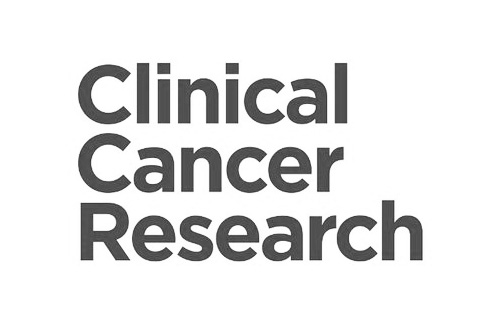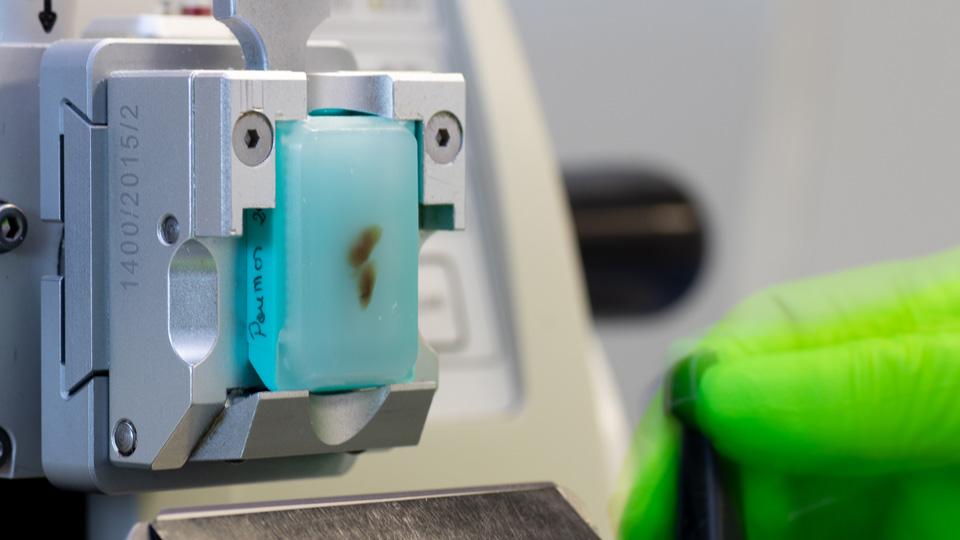
Sample Sourcing & In-House Processing
- Custom sourcing of human tumor samples through accredited French biobanks
- FFPE Specimens: Expertise in handling FFPE samples from humans and rodents
- Processing of Organized Structures Samples including tumor specimens (core needle biopsies, tissue microarrays, surgical sections) and organoids.
- Sample Qualification: Rigorous quality assessment to ensure optimal processing and reliable results.
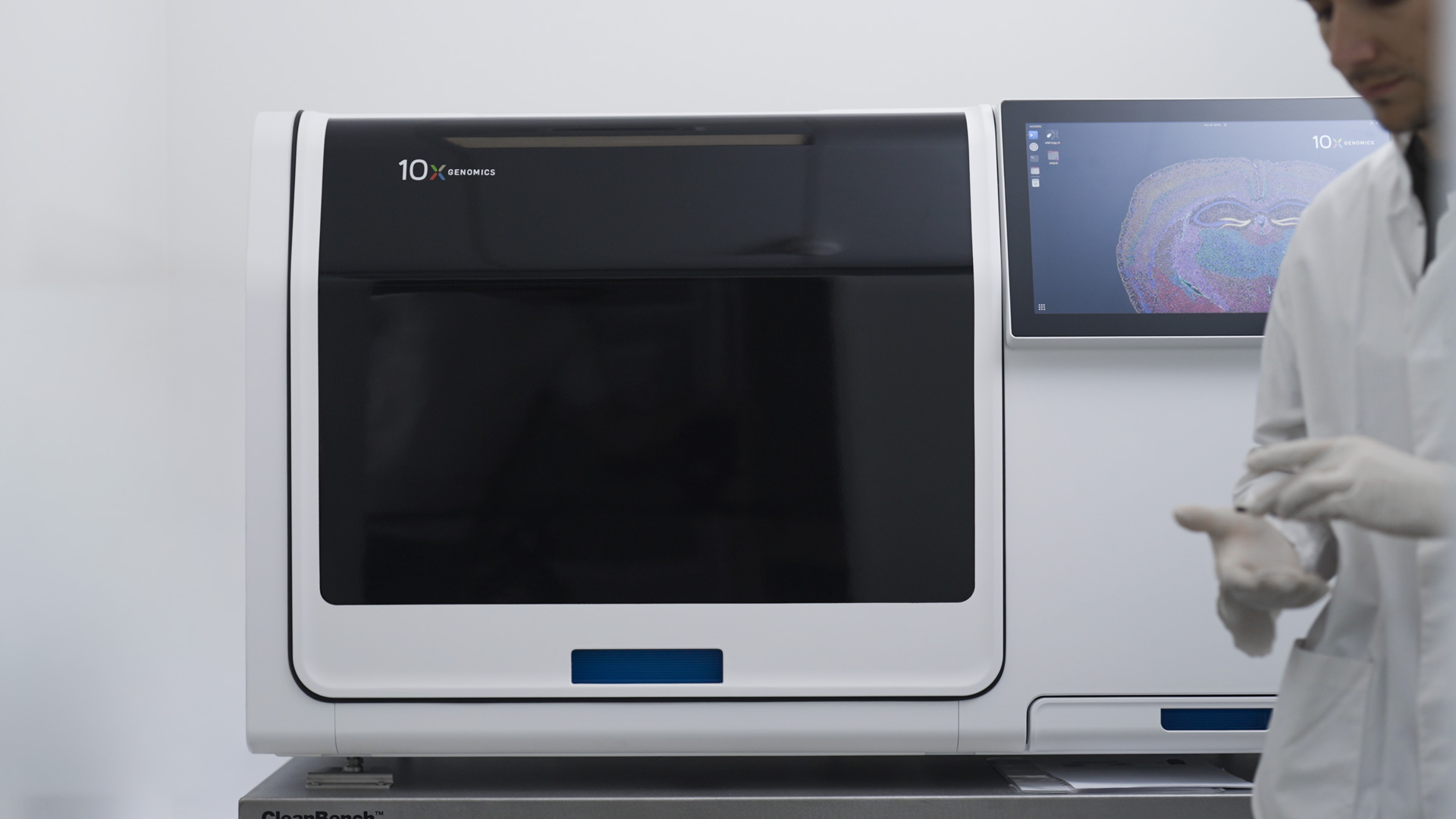
Cutting-Edge Xenium Platform
- Precise Region Analysis: Analyze and visualize regions up to 472 mm², validated by expert pathologists.
- Flexible Probe Sets: Choose from Prime 5K (5,001 genes) and IO (360 genes) panels, with the option to add up to 100 custom probes.
- 4 to 8 samples per week depending on the selected panel.
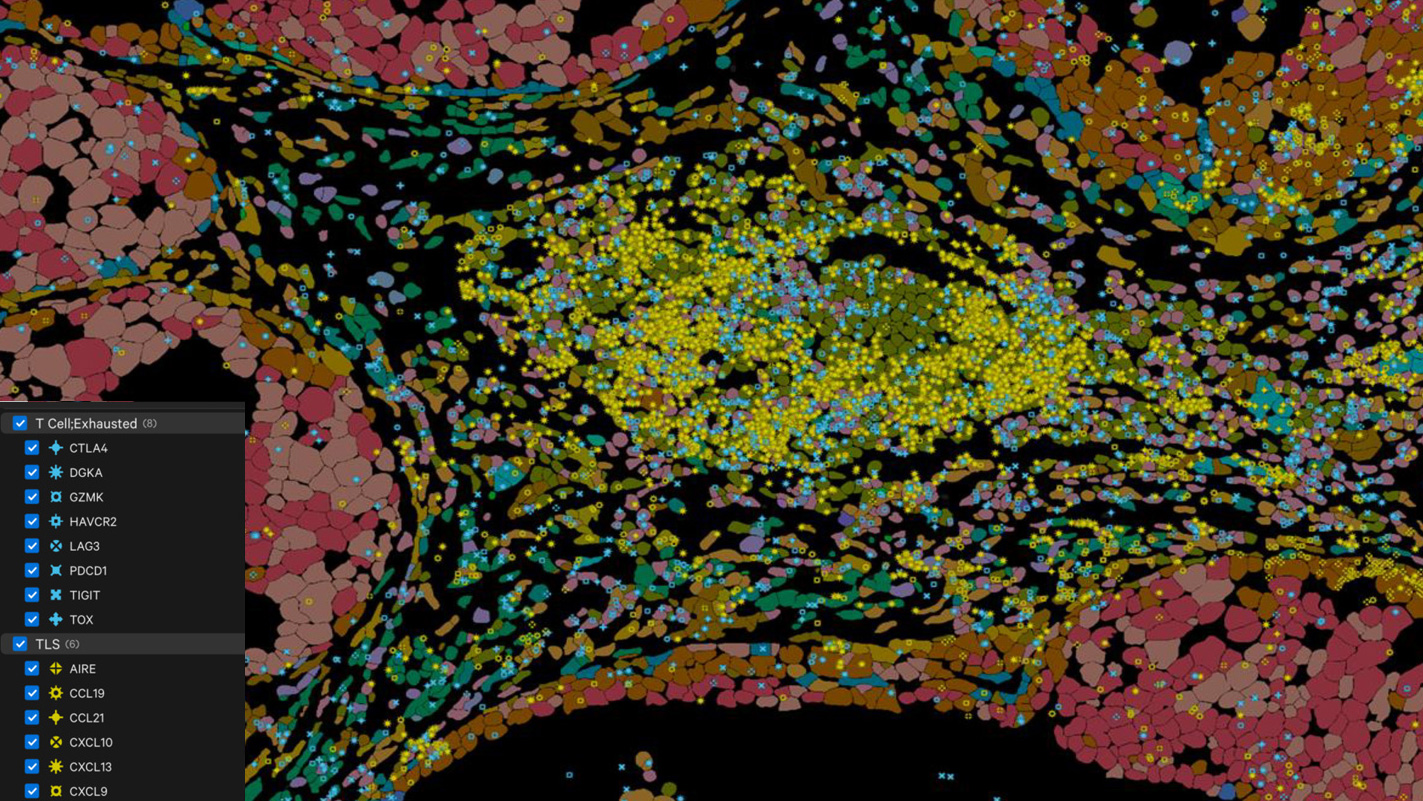
Comprehensive In-House Data Science
- Spatial Gene Expression Maps: High-resolution visualization of gene activity across distinct regions of the tumor.
- Cell Type Identification and Localization: Mapping and categorizing various cell types (e.g., cancer cells, immune cells) within the tumor microenvironment.
- Tumor Microenvironment Characterization: Profiling of signaling pathways, immune infiltration, and extracellular matrix components surrounding the tumor.
- Spatial Heterogeneity and Clonal Architecture: Analysis of genetic and transcriptomic diversity to identify and map distinct clonal populations within the tumor.

Custom Workflow from Sample to Data Analysis
- Collaborative Experimental Design: Partner with our experts to design experiments tailored to your specific scientific questions.
- Sample Preparation: Ship your samples to us, and we will prepare slides that meet Xenium standards before returning the processed material to you.
- Comprehensive Data Integration: Enhance your dataset with additional information from H&E staining and mIHF/IHC assays.
Experts
in Immuno-Oncology
- Proven Expertise: +30 peer-reviewed publications in the field of immuno-oncology in the last 5 years
- 10-year experience: Over 10,000 samples processed to explore mechanisms associated with sensitivity to cancer therapies.
- Advanced Technology: In-house cutting-edge in situ single-cell platforms to investigate the heterogeneity of your samples. Bulk single-cell transcriptomic platform also available.
Personalized
approach
- Tailored experimental design – sample and panel selection – to align with your unique requirements and specific sample types.
- Dedicated Expertise: Benefit from a dedicated PhD study director who will tailor your experimental plan and offer thorough discussions of your outcomes.
- Comprehensive Bioinformatics Support: Utilize our in-house bioinformatics pipeline crafted to maximize your spatial dataset value.
Single-cell spatial profiling of sarcoma sample
(A) A formalin-fixed paraffin-embedded (FFPE) section of sarcoma tissue was analyzed using the Xenium 5k Prime panel (10X Genomics), which incorporates morphology marker staining for spatial profiling.
To accurately segment and identify individual cells, a deep-learning-based segmentation algorithm was employed in Qupath (B). Single-cell RNA sequencing (scRNA-seq) analysis was then performed to cluster cells based on transcriptomic profiles (C). Each cluster was characterized through the analysis of specific marker genes to determine cell identity (D), which was subsequently mapped back to the tissue for spatial annotation (E).
This mapping enabled comprehensive secondary analyses, including the quantification of marker expression, assessment of cell type abundances, and exploration of cell-cell communication networks within the tumor microenvironment.
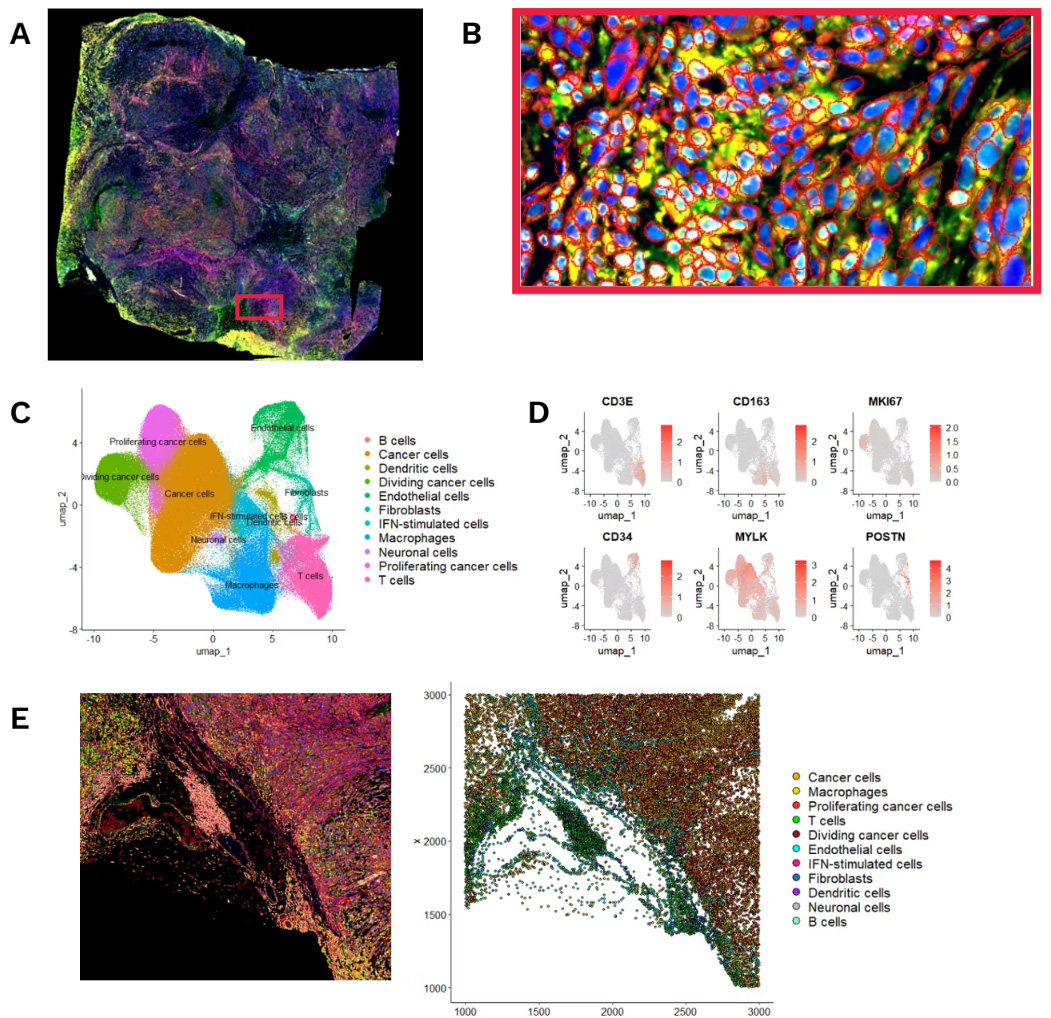
Your contacts

Talk to our team !
Paul Marteau, PharmD (preclinical study director), Imane Nafia, PhD (CSO), Loïc Cerf, MSc (COO), Alban Bessede, PhD (founder, CEO), Jean-Philippe Guégan, PhD (CTO)
Tell us about your project !
Single-Cell Spatial Transcriptomics CRO services with Xenium Analyzer by 10X Genomics
Explicyte is the first Immuno-Oncology CRO in Europe equipped with the 10x Xenium platform. Buidlding on it’s experience in spatial biology with the Nanostring GeoMx platform, Explicyte offers single-cell spatial transcriptomics services for the identification of novel targets, biomarkers, and the analysis of the anti-tumor immune response to cancer immunotherapy candidates, in solid tumors samples.









